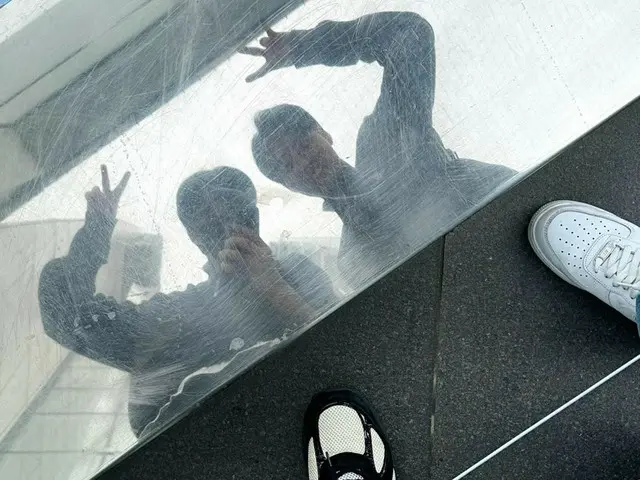 |
From the 1st generation "HOT" to the 2nd generation "SNSD (Girls' Generation)" and "BIG BANG", the 3rd generation "BTS", and the 4th generation "aespa" …, The “K-POP Idol System” that created all the moments of K-POP's growth and glory has been inspected again. The harmful effects of the K-POP system, such as fierce competition, exhaustion and speed battles, and deindividuation, were exposed. It is particularly significant that RM's mouth, which is said to be "the most model example of the K-POP industry as a whole" (popular music critic Park Hia), made such a story.
◇ Integrated system that led to the success myth of K-POP
Side effects of attrition warfare and personality are exposed
K-POP, which has spread beyond South Korea to Asia and Europe, and to the Anglo-American region, which is the home of the pop music market, is an original product built by SM, JYP, and YG Entertainment, which have been called the "3 major planning companies." Growing up in the system. Before the 1990s, a systematic business model was created with the advent of K-POP, unlike the days when music was sent out to the world by the donburi account formula. It is a kind of "human resources development" system. The entire process, including casting, training for trainees, production for content production, and marketing from public relations to distribution, was built with the K-POP system. SM Entertainment has benchmarked Japan's idol training system and has evolved it for decades in line with South Korea. It has continued from the time of the "Asian star" BoA, which debuted at the age of 13, to the present.
Such an efficient "integrated system" produced perfect content with internal and external unity such as music, dance, stage and costume.
However, the complaints of the so-called "internal members", that is, the singers, are considerable. For a long time, a "controlled life", a harsh practice process, and a continuous all-night march continue.
Compared to the overseas music market, K-POP stars generally suffer from “overwork”. Professor Lee Gyu-tak of George Mason University in South Korea said, "It takes a lot of understanding, time, and effort to release one album. In the case of K-POP, each album has a different concept and music, dance, stage, etc. and all concepts require a high degree of perfection, but unlike overseas, K-POP has a particularly short cycle of selling singles and EP albums."
Experts say, "I have no choice but to receive the image of being exhausted and exhausted."
Not only that, but because he has lived a controlled life in a strict system for a long time, he has no choice but to focus on the value for his "group" rather than the individuality and value of each artist. This is the point where the members in the group are unsatisfied and dissatisfied with the deindividuation. The elders of "BTS" also said, "I feel like I've become a machine when I'm doing group activities," and said, "I have a hobby and I want to do something (but I can't)."
Professor Lee said, "K-POP has established a big image of unifying music, dance, and fashion styles in one fixed concept, and it can reflect the individuality and various tastes of each member. It's difficult."
◇ A whip for huge investment and success ... The K-POP system is a "self-portrait of Korean society"
After all, the cause of the side effects of such a system is internal. In fact, fostering a K-POP idol group is the same as going to an unknown world, but no one can say whether it will succeed or not. The cost of debuting a group is increasing each year. Industry insiders say, "Even if the trainees breathe, the money will fly." Invest, but in an industry like a sand castle, the process gets tougher. It goes through excessive competition with scoring methods such as "month-end evaluation" in the name of selecting boulders. If you try to "satisfy the perfection required for K-POP" (Professor Lee Gyu-tak), you will have a longer life as a trainee. Instead, support and investment are strong. After going through this process, the goal is fast success and recovery of investment costs.
Jung Min-jae critic said, "Since the song world starts with a 7-year standard contract, it is based on the recognition that it must rise to a high position as soon as possible within this period and make a profit through many activities. Therefore, it will be a very difficult activity to release 2 or 3 new albums in a year."
The industry believes that the "inconvenient truth" of the K-POP system, which was revealed through the confession of top stars, will have a considerable impact in the future. Popular music critic Lim Jin-mo said, "There are various stories and worries about whether the target that can protect K-POP is an individual singer or a system."
Of course, it's not easy to review the system. This is because this system, which has continued from the past, created the current K-POP. Park Hia said, "The merit of the system is clear because such a system itself produces high-quality music and performance, which is accepted as a culture and exported back to Japan." talked. However, the cry of the top star's heart is expected to become an even bigger echo, triggering improvements and transformations in the K-POP system.
The K-POP system, which has various problems such as speed battle and competitive system, and the resulting exhaustion and exhaustion, is a “self-portrait of Korean society”. Just as various side effects have appeared behind the Korean society that has experienced high growth, the K-POP industry is similar to that.
Jung Min-jae, a critic, said, "As with all areas of Korean society, it's the same as a detonator exploding at one point because it's so devoted to producing results without rest." He got on track industrially and musically, devoted himself to success and devoted himself to speed warfare. "At the same time, he emphasized, "Now K-POP must be able to slow down, look back on perfection and musician welfare, and instead of competing, take a little breath and move into the music industry."
2022/06/23 09:19 KST


